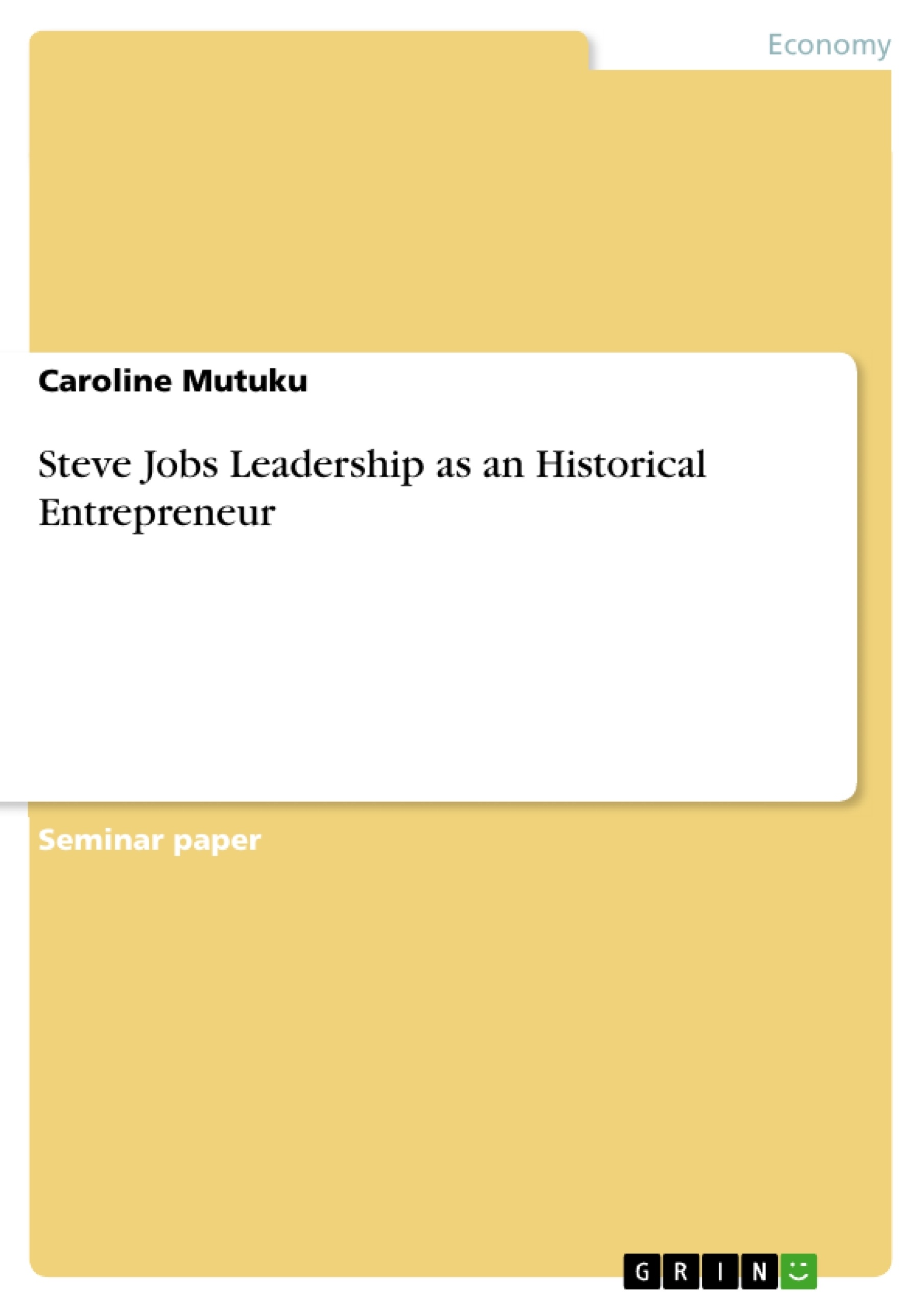Entrepreneurship seems to have shaped the global economy although the art of doing business in the 21st century is gradually changing for the realignment with emerging technological discoveries. Ordinarily, the philosophy of entrepreneurship can be explained as a mindset that drives an entrepreneur towards finding profitable innovative solutions to problems facing mankind in the universe. It is believed that success in entrepreneurship is determined by an individual’s ability to identify problems and develop creative solutions before somebody else does it. However, successful entrepreneurs exhibit habitual creativity in exploiting existing opportunities around them. In reality, personality, experiences and availability of economic opportunities are the principal determinants of entrepreneurial success. Historically, there are numerous entrepreneurs who emerged successful in their time over the time since the inception of trade. In the early days, most successful entrepreneurs amassed vast treasures of wealth to establish empires, especially during the golden age although entrepreneurship was not as challenging as it is today. Nevertheless, the modern world has produced prominent entrepreneurs whose innovations have become some of the significant drivers of globalization. Steve Jobs is one of such innovative entrepreneurs. His way of doing business reflected a magnificent integration of his personality. Therefore, this paper explains why Steve Jobs was successful as an entrepreneur.
Table of Contents
- Introduction
- Steve Jobs at Apple
- Success
- Focus
- Communication Skills
- Passion and Confidence
- Innovation
- Imagination
- Experiences
- Economic Opportunities
Objectives and Key Themes
This paper examines the factors contributing to Steve Jobs' success as an entrepreneur, focusing on his personality, innovative ability, and the influence of economic opportunities. The paper aims to analyze how these elements combined to shape his leadership style and drive Apple's remarkable growth.
- Steve Jobs' personality traits and their impact on his entrepreneurial success
- The role of innovation and imagination in Apple's product development
- The importance of economic opportunities in driving entrepreneurial success
- Steve Jobs' leadership style and its influence on Apple's culture
- The impact of Steve Jobs' legacy on the tech industry
Chapter Summaries
The introduction establishes the importance of entrepreneurship in the modern world and positions Steve Jobs as a prominent example of a successful innovator. It explores the philosophy of entrepreneurship, highlighting the role of problem-solving and creative solutions. The paper then dives into Steve Jobs' journey at Apple, emphasizing his role in revolutionizing digital publishing, mobile technology, and personal computing. It examines his turbulent years following the founding of Apple, including his departure and subsequent return to a company on the verge of bankruptcy.
The "Success" section delves into the key personality traits that contributed to Steve Jobs' entrepreneurial success. It highlights his unwavering focus, which he applied to streamline Apple's product offerings and decision-making processes. The section also examines his exceptional communication skills, his passionate and confident leadership style, and his innovative ability to design products that met the needs of the market.
The paper further analyzes Steve Jobs' remarkable imagination, which enabled him to create intuitive and user-friendly designs like the iPad. It also considers how his experiences, both personal and professional, shaped his entrepreneurial approach. The paper concludes by acknowledging the role of economic opportunities in Steve Jobs' success, highlighting how his innovations coincided with the growing adoption of digital technology.
Keywords
This paper examines the core concepts of entrepreneurship, leadership, innovation, and the role of economic opportunities in driving successful business outcomes. It focuses on Steve Jobs' personal traits, including his focus, passion, communication skills, and imagination, as key drivers of Apple's remarkable growth. Key themes include the impact of Steve Jobs' leadership style on Apple's corporate culture and the significance of his legacy on the tech industry.
Frequently Asked Questions
What were the key factors behind Steve Jobs' success as an entrepreneur?
Steve Jobs' success was driven by a combination of his visionary personality, unwavering focus, exceptional communication skills, and his ability to identify and exploit emerging economic opportunities in technology.
How did Steve Jobs' leadership style influence Apple's corporate culture?
His leadership was characterized by passion, confidence, and a high demand for excellence. This fostered a culture of innovation and design-led thinking that differentiated Apple from its competitors.
What role did innovation and imagination play in his business strategy?
Jobs prioritized imagination to create intuitive products like the iPad and iPhone. He didn't just follow market trends; he used innovation to solve human problems before the market even realized they existed.
How did Steve Jobs handle the period after leaving Apple in the 1980s?
His experiences outside Apple, including founding NeXT and Pixar, shaped his entrepreneurial approach. His return to Apple in 1997 saw him apply these lessons to save the company from bankruptcy.
Why is Steve Jobs considered a historical entrepreneur?
He is considered historical because his innovations fundamentally changed multiple industries, including personal computing, music, and mobile communications, driving the forces of globalization.
- Citation du texte
- Caroline Mutuku (Auteur), 2018, Steve Jobs Leadership as an Historical Entrepreneur, Munich, GRIN Verlag, https://www.grin.com/document/429722



